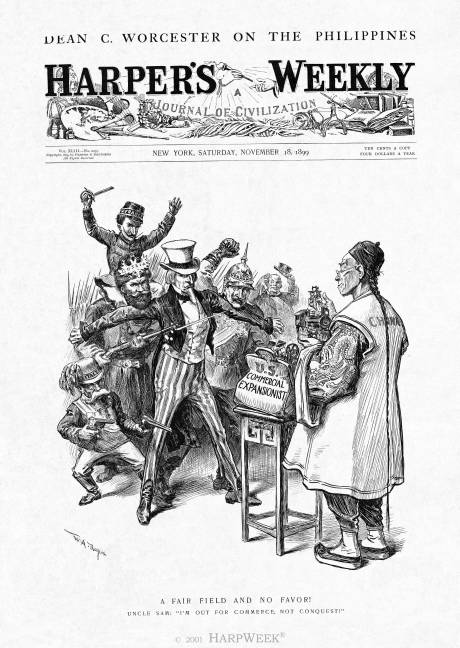Was the “Open Door Policy” of 1900 - 1910 Beneficial to China?
U.S. Interests Come First, then Worry about Europe and China Last

Rogers, Williams. A Fair Field and No Favor. Political Cartoon. 18 Nov 1899. HarpWeek: Cartoon of the Day.
<http://www.harpweek.com/Images/SourceImages/CartoonOfTheDay/November/111899m.jpg>.
The “open door policy” as a concept may
sound like a good idea for a supporter of a global economy, however
when it was first enforced by the United States in terms of China, the
policy was gilded (McCormick). This is because the purpose of the
policy in itself was primarily out of benefiting U.S. interest. If one
were to recall the background history leading up to the imposing of the
open door policy, the U.S. had just acquired the Philippines after the
Spanish-American War, planting them 400 miles away from China, and one
step closer to gaining access to their market (Boxer). Because there
were already existing spheres of influence in China - primarily
belonging to Britain and Japan as a result of the Sino-Japanese War and
previous imperialism, the United States also wanted to have its own
sphere of influence in China (Tignor 314). The U.S., specifically John
Hay - author of the open door notes and “open door policy”
- decided a diplomatic agreement would be best rather than using force
against China not out of concern for them, but simply because it would
not be agreeable with the U.S. citizens after having just ended a war
with the Spanish previously (Boxer).